Now, 21 months later, living out of Rafiki has become second nature. Packing up or setting up the tent only takes minutes as a result of our refined teamwork, we listen to podcasts and music when the windows are closed, and enjoy the ‘silence’ and scenery when driving with our windows rolled down. Oh, and we’ve reassembled and reorganized every single drawer in the car to make it as efficient as possible to access something with the lifestyle we’re currently living.
How it started
Twenty-one months ago, I spontaneously said ‘YES!’ to Tobias when he asked me to join his next expedition. We changed the proposed itinerary from South America to Africa and without second-guessing myself, I went for it. Although I had owned a van with a built-in kitchen and bed, I had never been on a long-term journey by car before. Besides that, I had no real clue what awaited us in Africa, and if that wasn’t enough already, I also had to find my way around living together with Tobias, whom I barely knew when we left.
I remember those first nights so vividly. I felt like a giggly, 15-year-old girl who couldn’t contain her excitement. It didn’t matter much what we did or where we went, as every single place and moment was the definition of adventure to me. On the other hand, I was also awkward. “Can you turn around?”, “Don’t look now”, and “Emh…, I’m gone for a second”, were general things that I would say when either (un)dressing myself, when taking a shower, or when picking up the shovel and toilet roll to walk away into the bush for a while. Sharing these moments with someone you closely know can already be a bit awkward, and that feeling was so much stronger because we didn’t actually know each other closely.
Text continues below photo
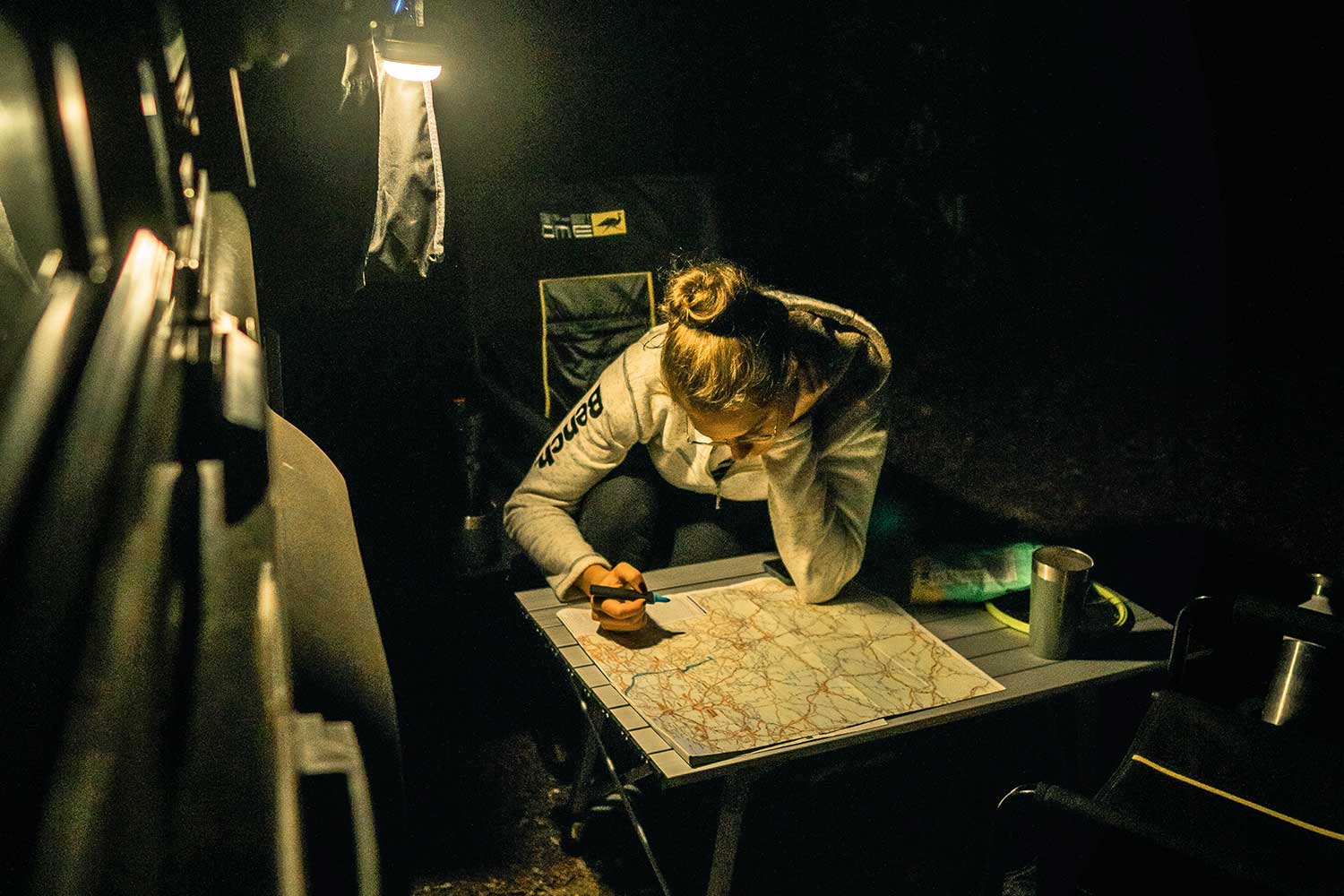
A gradual change
From those first, awkward moments in the middle of our adventure, I slowly slid into a more comfortable feeling of ‘being’. I didn’t have to say those “Don’t look now” things anymore as Tobias knew exactly what I wanted or did not want. Besides that, we got to know each other very quickly. When traveling in a car – side by side, 24 hours a day – you quickly learn that you have to express all of your feelings. Regardless of what the short-term consequences might be. It is paramount to share thoughts that can impact your relationship. Otherwise, tension will inevitably build up and that has never been a good thing in any relationship. So, after a month or so, we had both had our good days and our bad days, and we got a pretty good sense of how traveling together would be, and how we could support each other on those bad days.
Besides everything that had to do with the two of us, and with traveling in a car, I also learned a lot about overlanding abroad once we crossed into Morocco. As I said earlier, I was not prepared at all for traveling through Africa. I had not looked into the different cultures across the continent, nor had I tried to understand what those cultures might mean for me as a traveler. For example, I hadn’t consciously thought about the Islamic culture in Morocco, and how women usually dressed in these cultures. I was lucky enough to carry a scarf in my backpack which I could use to cover my hair, but with temperatures rising to 40 degrees Celsius, I also experienced firsthand that wearing something over my head and hair was very, very warm.
A couple of weeks later, we went for a swim in a lake. Men and women were present, either enjoying the water or using it to rinse their newly made carpets. One thing that was evident was the following; whereas men were found either on shore or in the water, none of the women were swimming or enjoying the lake just for fun. I didn’t feel comfortable to swim in my bikini, revealing much of my skin, and so I dove in with all my clothes still on. The one time I did this before was to get my swimming diploma, but never since. And with good reason. It wasn’t comfortable.
Although Morocco – being our first African country – provided me with many challenges in adaptability, it was also a country that taught me about understanding. I was lucky enough to visit their country, and so the least I could do was dress and behave in ways that were expected of me, seen from their perspective. With the lovely words, praising hands and face-wide smiles as a result of my adaptation, I knew understanding and adapting were both positive things.
Text continues below photo
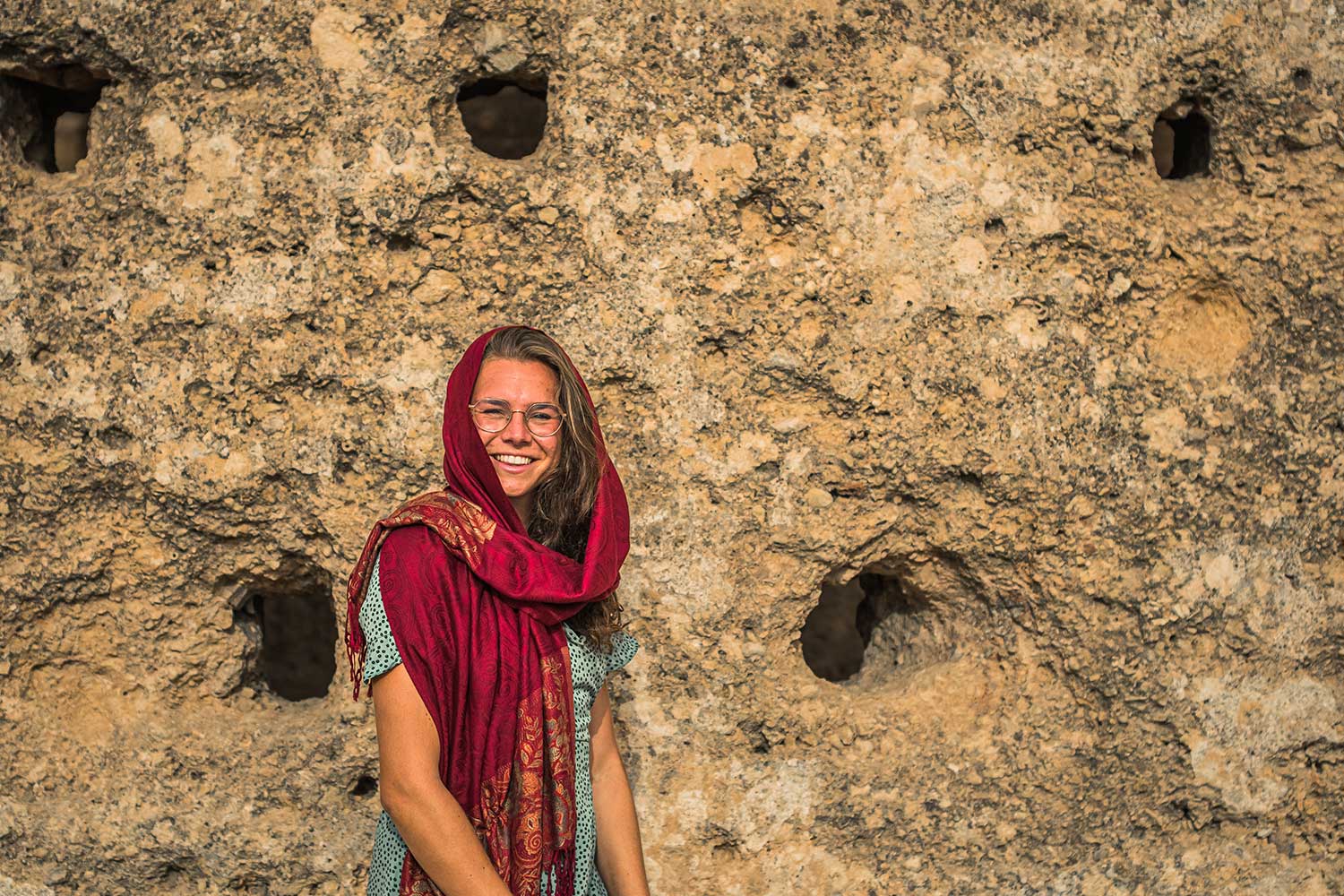
Twenty-one months on the road
Now, after twenty months, we’ve reached a totally different part of Africa. The Islamic culture is less present here, and Christianity is more commonly practiced. In comparison to Morocco and Mauritania, I never have the feeling that I have to adapt anymore. Or perhaps I’ve gotten so used to adapting, that I don’t notice anymore. And although that might sound like something positive, it also has its downsides. Due to the fact that I have a white skin, I almost always stand out in the crowd. Even though I want to feel part of the local community, I often feel looked at. When I would wear that scarf around my head, I would instantly feel part of the people, of the culture. That is something I rarely feel in countries like Namibia, South Africa or Lesotho.
Nevertheless, these twenty months have also brought much good to my experiences. Traveling with Tobias and driving in Rafiki now feels like part of me. Although Rafiki is technically still Tobias’ car, it feels just as much like my home. I know the ropes and it gives a confidence boost to know that if anything should happen to Tobias, I am more than capable of taking care of him whilst also ‘taking over’ our home for a while.
Text continues below photo
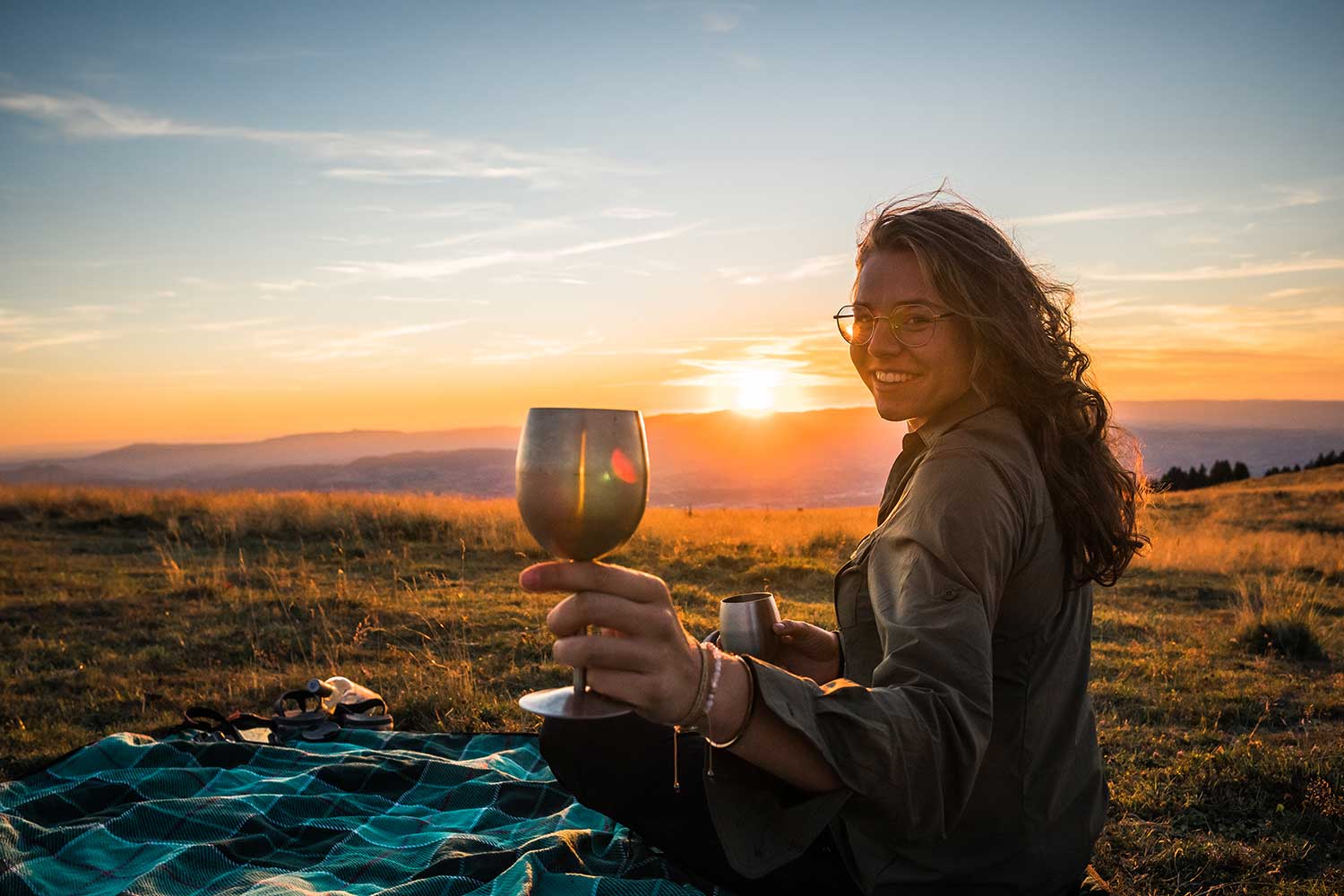
A house with walls
Recently, we rented a house for three weeks. A little cabin including a bedroom, bathroom, kitchen and lounge area. Nothing fancy, but complete and homey. Once we carried in all of our necessities, from food to clothes and more, it felt like home. Like we experienced when I first stepped into Rafiki, we quickly found our own roles in the house. We were a team, in and outside of Rafiki.
Now being back in the car, one thing has become evident; yes, working from a house is much more convenient than from the car – especially in bad or cold weather. But more importantly, we learned that we are not done yet with the adventure and with going out of our comfort zones. Sitting in that house day after day, I felt like the evening would never come. The day always just took so long. While overlanding you take care of many unexpected things, from coolant leaks to water-finding missions. They take up some time during your day, but most importantly, they keep you sharp. And that is something I missed while being in that house. The unexpected, out-of-your-comfort-zone things that make life worthwhile and that keep you present in the moment.
And so, after twenty-one months of overlanding, I’ve learned a bunch, I’ve adapted countless times and I’ve become used to the unexpected. Yet the adventure never dies and we’re ready to add some more month to our African expedition. Bring it on!
This blog will be part of a larger series about overlanding as a women. Stay tuned for more!
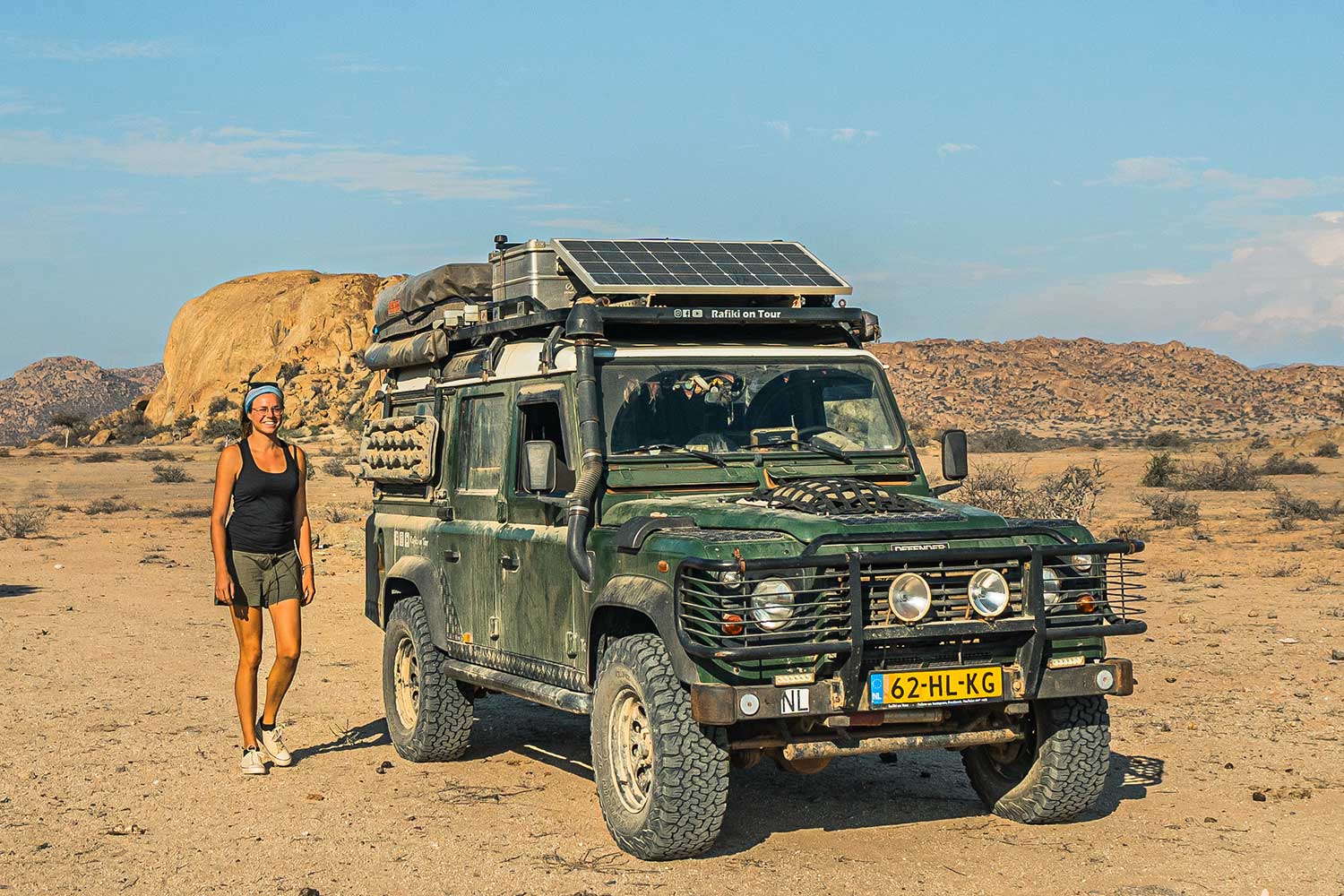

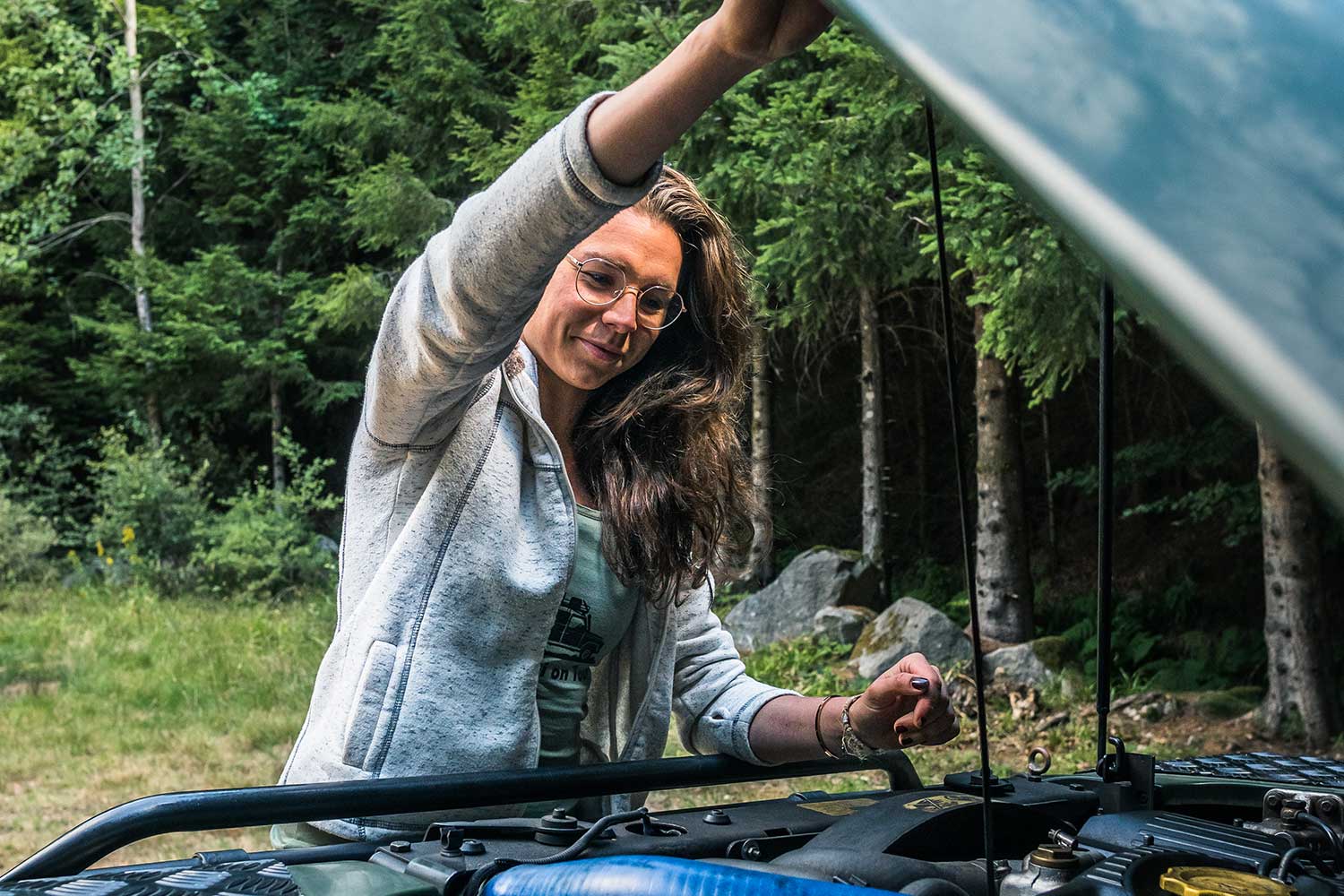


0 Comments